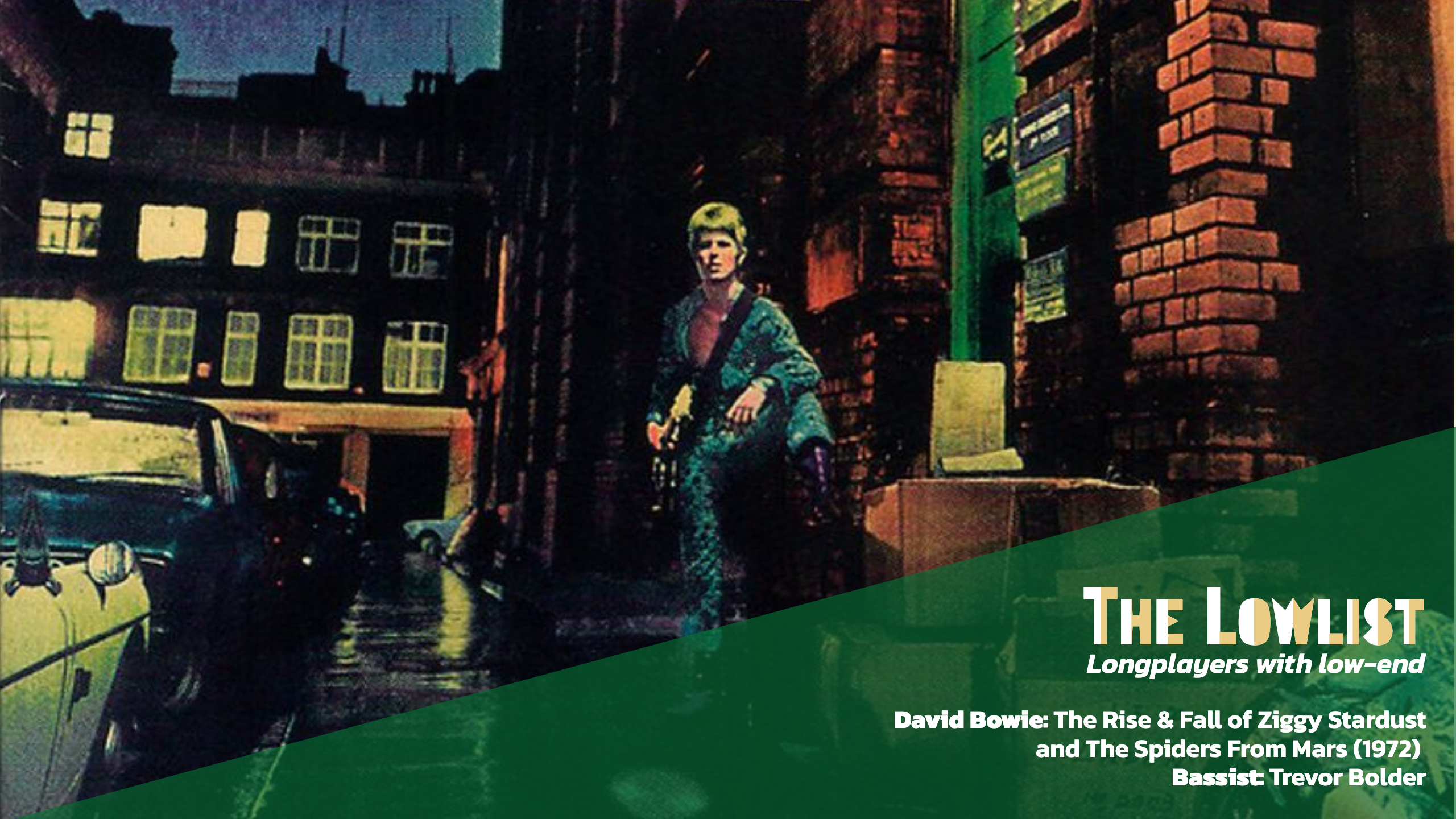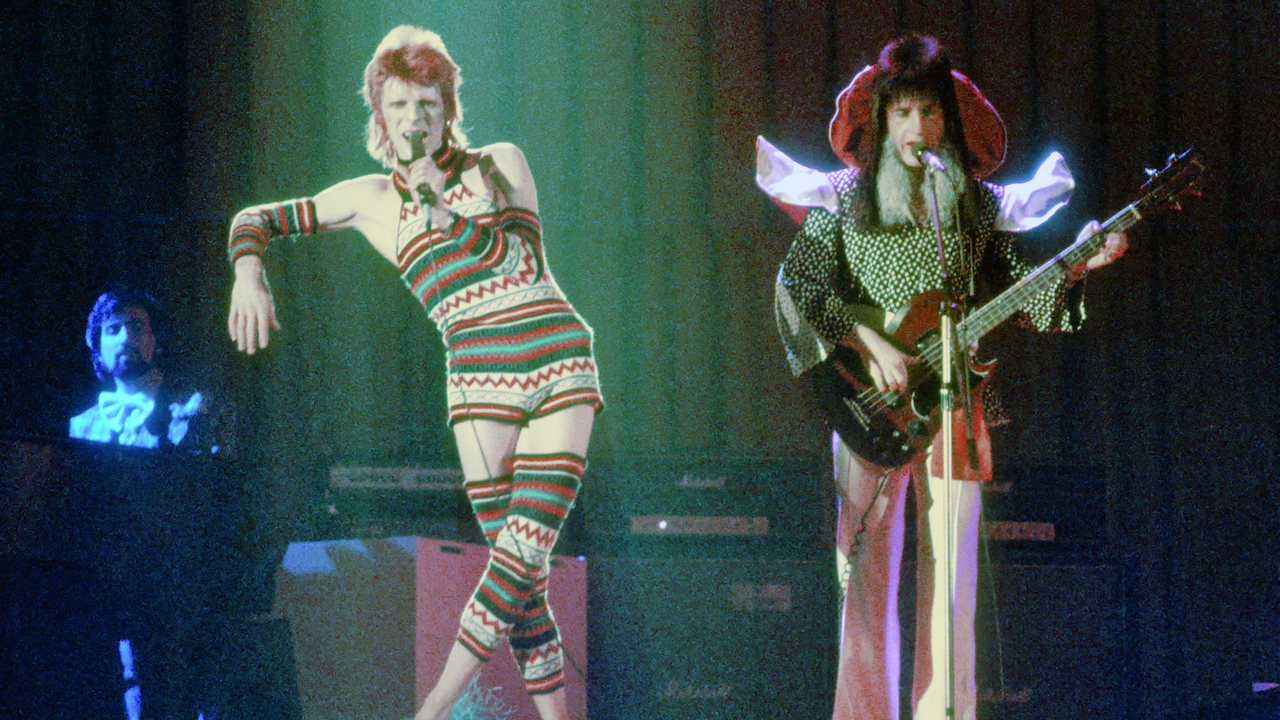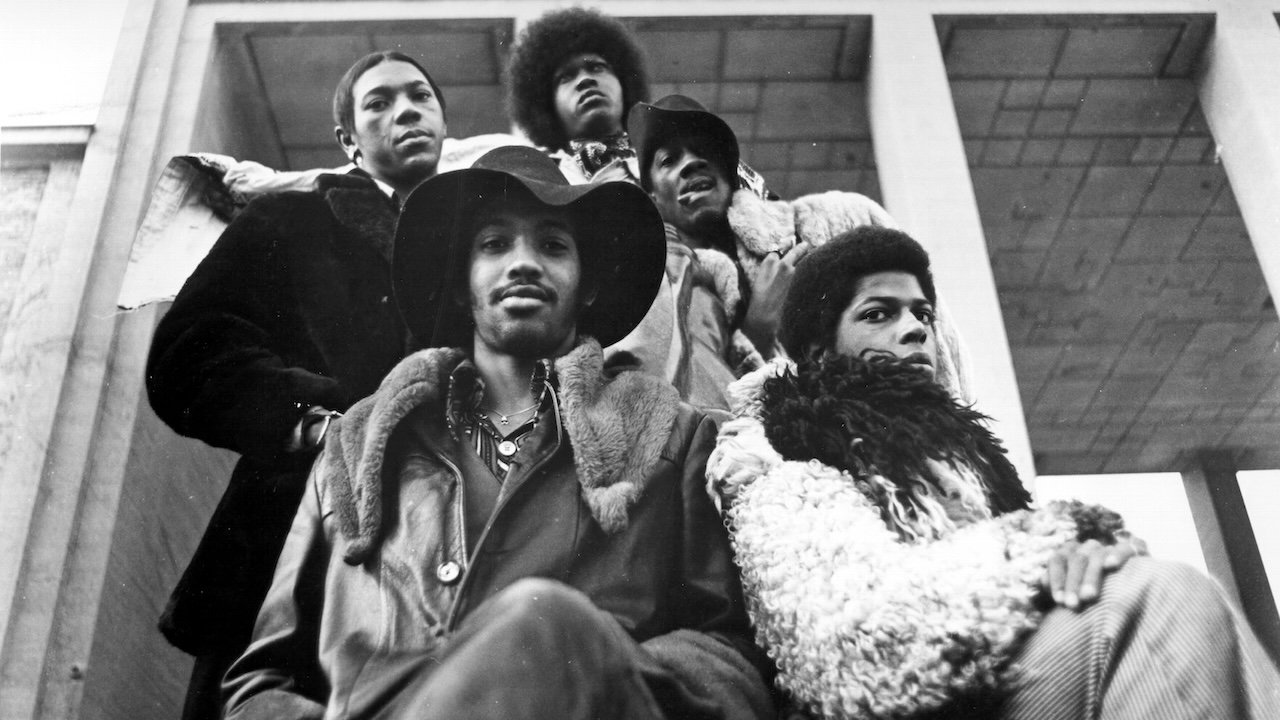"I never wanted to be just the bass player, plonking away. I played a lot of notes – too many sometimes!" Trevor Bolder and the low-end magic of David Bowie's Ziggy Stardust
Ziggy Stardust was recorded in just one day. It made David Bowie a star. But bass players could only hear Trevor Bolder...

All the latest guitar news, interviews, lessons, reviews, deals and more, direct to your inbox!
You are now subscribed
Your newsletter sign-up was successful
It wasn’t the biggest-selling album of David Bowie’s career but The Rise And Fall Of Ziggy Stardust And The Spiders From Mars is the album that thrust him into the public’s consciousness, broke him in America and heralded the arrival of a new artistic force on a global scale. People are still talking about it today: To mark the 50th anniversary of the Spiders' final gig in July 1973, Ziggy Stardust And The Spiders From Mars: The Motion Picture, the classic concert movie by D.A. Pennebaker has been digitally restored and is being re-released in US cinemas throughout July.
The album itself was released in June 1972 and reached number 5 in the UK and a lowly number 75 in the US – but went on to sell in excess of 7.5 million copies.
With his band, the Spiders From Mars — Mick Ronson (guitar), Trevor Bolder (bass) and Woody Woodmansey (drums) — Bowie adopted the Ziggy Stardust character and in doing so created the ultimate concept album. That said, many of the songs on the LP were recorded several months before any such ideas were even suggested, shortly after Bowie’s previous album Hunky Dory was finished.
Trevor Bolder, a phenomenally talented and melodic bassist, could be seen with Rickenbacker and Fender instruments at the time – but for this album and its 1973 follow-up Aladdin Sane, he made the most of a Gibson EB3 bass, either plugged direct or using Marshall and Ampeg amplification. Judging from the sound of the basslines, flatwound strings were certainly the order of the day, most likely courtesy of Rotosound.

Bolder’s first bass had been a Burns (“They were horrible, weren’t they?” he joked) and then a Precision that he swapped for a Mustang when he joined Bowie’s band: “I only swapped it because I had such small hands,” he told Bass Player.
“With Bowie I used a 100-watt Marshall bass head and two 12” cabs,” he said. “That was it. It was like, plug in, turn it up, and away you go. I was a huge fan of Jack Bruce so I had a slight edge of distortion on it, but there were no pedals or anything like that back then.”
One fan of Bolder’s playing is a fellow bass player from Hull, Lou Duffy-Howard of the Red Guitars. “Trevor was a fantastic bassist,” she said. “He was just such a melodic player and he never played anything the same twice – listen to the songs. If you listen, he's playing something different in every chorus, always got loads of different interesting little runs.”
All the latest guitar news, interviews, lessons, reviews, deals and more, direct to your inbox!
Bolder was a multi-instrumentalist – like his hero Jack Bruce – and he felt that helped him develop his style. “I think the thing that was good for me – like it was for Jack Bruce who played cello, which is a melodic instrument – was that I played trumpet and I adapted the trumpet stuff to the bass as well, playing melodic parts,” he told Let It Rock.
“I never wanted to just be a bass player plonking away, I always wanted to have the edge to the sound and be able to play with a melodic feel. I play a lot of notes – too many notes sometimes," he joked. "A bass player isn’t just somebody who just sits back there and plonks away, it’s somebody who adds a lot to the music.”
The album opener Five Years features a picked bassline that sits perfectly among the drums and piano of the verses, with a low-mid presence that fits the instrumentation of the track. The song never breaks away from its mid-tempo rhythm, and Bolder’s performance reinforces its simplicity, sitting perfectly with Woodmansey’s bass drum.
Soul Love features a constantly moving bass part. Even when playing in the upper register, Bolder’s bass tone is full, consistent and smooth. The track was recorded in November 1971, before Hunky Dory’s release.
Moonage Daydream was written by Bowie in early 1971 and released as a single in May that year by the band Arnold Corns, a short-lived Bowie spinoff project, before being revisited for this album. Both Woodmansey and Bolder cite the track as their favorite on the album, as did producer Ken Scott. Bolder’s signature ascending and descending grace notes shift between each root note in the verses – and his descending bassline, in unison with Bowie’s descending backing vocal, creates a memorable earworm.
Did Bowie get involved in writing the bass parts, we asked him? “No, it was all mine,” said Bolder. “With him, he played you a song, and you had one run-through and that was the one you took. That was it. Ziggy Stardust was recorded in a day and mixed in two days. The backing tracks for Aladdin Sane only took two days.”
For budgetary reasons? “No, that was just how he worked. He was an easy man to work with, but it was difficult when you were doing something like The Jean Genie, [from Aladdin Sane] which he played you once and then made you record it. That’s why that cock-up is on there at the end of the first verse, where he says ‘Get back on it’. I went down to the B before I should have done, one bar early. He liked it, though, and said he wanted to keep it.” (Later, Bolder went “on tour with a couple of the guys from Def Leppard a few years ago and we played that song every night – and I had to play that mistake every night, because they said, everybody knows it!”)
Ziggy's lead single, Starman was the last song written for the album. It climbed the charts slowly, but after it was performed on Top Of The Pops in July 1972 it took off, taking the album with it. Now everyone knew who Bowie and his Ziggy creation were, including the more traditional TV viewers of the day, some of whom were appalled by Bowie’s affectionate embrace of Ronson.
Lady Stardust is believed to be about Bowie’s fellow glam-rocker Marc Bolan, and features a fine performance on piano by Mick Ronson, a man of many talents and the perfect foil for Bowie at this time in his career. Star combines several different feels, rhythms and tempos while Hang On To Yourself has an almost punky feel, certainly from the bass performance.
Ziggy Stardust itself needs no introduction. It’s one of Bowie’s signature compositions, resplendent with a fine bass performance from Bolder. It’s played with a pick, with slid notes and constantly moving, sometimes tasteful venturing into the upper register for good measure.
It’s easy to wax lyrical about David Bowie and his musical output, despite some of his misfires. But Ziggy Stardust is not only one of the highlights of his back catalog, but a great record of Bolder's talent and his status as one of the most influential bassists of the 70s. His later work with Uriah Heep only added to his ongoing legacy.
David Bowie's Ziggy Stardust And The Spiders From Mars: The Motion Picture is showing at selected cinemas across the US throughout July. For info and tickets visit Bowie's website. A 50th Anniversary Soundtrack album will be released on 11 August via Rhino. The Rise And Fall of Ziggy Stardust And The Spiders From Mars is available to buy and stream.
